
Inside Geneva
SWI swissinfo.ch
A podcast from SWI swissinfo.ch, a multilingual public service media company from Switzerland, where Imogen Foulkes puts big questions facing the world to the experts working to tackle them in Switzerland’s international city. This podcast was produced as part of the Genève Vision media network, in partnership with the Graduate Institute Geneva.
- 36 minutes 30 secondsCan the UN and international law survive?
In 2024 there are more than 100 conflicts ongoing, worldwide. A record number of aid workers have been killed.
Tom Fletcher, UN Emergency Relief Coordinator: ‘It’s not just the ferocity of these conflicts, Gaza, Ukraine, Sudan, Syria. It’s about that wilful neglect of international humanitarian law. And as a result we seem to have lost our anchor somehow. That scaffolding, that we felt was there, international humanitarian law that I was hoping we’d be taking for granted at this point, is shaking.’
Inside Geneva asks whether we have given up on international law.
Nico Krisch, Professor of International Law, Geneva Graduate Institute: If I see the Europeans talks about international law and the rules based order, but then keep supporting Israel in the face of the International Court of Justice - deliver weapons, not take part in the negotiations on the legally binding instrument on business and human rights that many countries in the global south want, then I ask well, what do you really mean by your commitment to international law and multilateralism?
Can the United Nations survive such double standards?
Richard Gowan, Crisis Group: I think the rest of the UN membership is watching this, they’re seeing a fragmenting international order, and they are profoundly frustrated.
And what about the long term effects of so much violence, for the perpetrators as well as the victims?
Cordula Droege, Chief Legal Officer, ICRC: Humanitarian law is also based on the fact that to dehumanise your enemy means that you also dehumanise yourself. And if you do it on a large scale you dehumanise the entire society and the fabric of society.
Is the age of multilateralism, cooperation, the ‘rules based order’ over?
Jan Egeland, Secretary General, Norwegian Refugee Council: The ideals were shared by more governments, there was more unity of purpose. And today there is more nationalism, introspection, skepticism. Europe first, America first, me first, rather than humanity first.
Get in touch!
- Email us at [email protected]
- Twitter: @ImogenFoulkes and @swissinfo_en
Thank you for listening! If you like what we do, please leave a review or subscribe to our newsletter.
For more stories on the international Geneva please visit www.swissinfo.ch/
Host: Imogen Foulkes
Production assitant: Claire-Marie Germain
Distribution: Sara Pasino
Marketing: Xin Zhang24 December 2024, 8:00 am - 32 minutes 32 secondsHow has the world changed in 2024? UN correspondents look back
In this week’s Inside Geneva episode, UN correspondents in Geneva and New York look back at 2024.
Dorian Burkhalter, journalist, SWI swissinfo.ch: ‘Wars everywhere, climate change, deepening inequalities, AI…it’s just threats everywhere. But it just seems like the more global our problems are becoming, the weaker the UN is also becoming.’
But is the biggest event of the year the US election?
Nick Cumming-Bruce, contributor, New York Times: ‘It’s hard to top the US election because it’s already dominating the conversation on everything else that we’ve covered in 2024.’
What could an isolationist America first strategy mean for the UN, and for the multilateral system?
Dawn Clancy, UN correspondent, New York: ‘Pulling out of the Paris Agreement, or the WHO, threatening to cut funding, the US is the biggest funder of the UN, billions of dollars. So it’s just going to be chaos and no leadership.’
Are we on the verge of a new world order, without the guardrails of international law, or the Geneva Conventions?
Imogen Foulkes, host, Inside Geneva: ‘The world is changing, while I’m watching, in terms of our fundamental principles, the world is changing while I’m watching, and for a while I didn’t even quite notice it.’
Join us on Inside Geneva for an in-depth discussion of 2024, and some predictions for 2025.
Get in touch!
- Email us at [email protected]
- Twitter: @ImogenFoulkes and @swissinfo_en
Thank you for listening! If you like what we do, please leave a review or subscribe to our newsletter.
For more stories on the international Geneva please visit www.swissinfo.ch/
Host: Imogen Foulkes
Production assitant: Claire-Marie Germain
Distribution: Sara Pasino
Marketing: Xin Zhang10 December 2024, 8:00 am - 29 minutes 54 secondsEurope, the UN and the battle for human rights
Is the world still committed to human rights? Our Inside Geneva podcast is in Strasbourg, where the Council of Europe is discussing how to defend the fundamental principles we agreed upon after the Second World War.
“We can’t just say, ‘Do it because it’s a human right’ or ‘Do it because it’s in a treaty.’ We have to demonstrate: ‘Do it, and this is how it will make your society better and stronger,’” says Michael O’Flaherty, Human Rights Commissioner at the Council of Europe.
With autocracies in Russia and China and uncertain times ahead in the US, can Europe hold the line?
“If Europe doesn’t get this right, I can guarantee you it will not be good for Europe. It will be worse in the rest of the world as well, so it’s a vicious spiral,” continues Peggy Hicks, UN Human Rights.
But even in Europe, the commitment to human rights is sometimes weak.
“For many, human rights are a bit of an afterthought in our policy. It’s something to make us feel good about ourselves,” says Olof Skoog, the EU’s Special Representative for Human Rights.
We also talked to Sofia Moschin, student and human rights defender, who said that “inside Europe, there are constant violations of human rights, so I don’t agree with the narrative that Europe is a human rights champion.”
We also talked to Sofia Moschin, a student and human rights defender, who said, “Inside Europe, there are constant violations of human rights, so I don’t agree with the narrative that Europe is a human rights champion.”
How should Europe stand up for its values?
“I’m not going to accept defeatism. Get furious – that’s what we need to do now. Don’t throw in the towel, don’t surrender. Get indignant, get furious and fight back to save this astonishing achievement,” says O’Flaherty.
Join host Imogen Foulkes on the latest episode of our Inside Geneva podcast to listen to these interviews in full.Get in touch!
- Email us at [email protected]
- Twitter: @ImogenFoulkes and @swissinfo_en
Thank you for listening! If you like what we do, please leave a review or subscribe to our newsletter.
For more stories on the international Geneva please visit www.swissinfo.ch/
Host: Imogen Foulkes
Production assitant: Claire-Marie Germain
Distribution: Sara Pasino
Marketing: Xin Zhang26 November 2024, 8:00 am - 29 minutes 48 secondsInside Geneva goes to New York: what really happens at the UN?
This week Inside Geneva goes to New York. The United Nations (UN) General Assembly is hearing multiple reports of serious human rights violations.
“I think it’s more difficult to get the human rights message [across] here in New York at the General Assembly. But hopefully we will be heard,” says Mariana Katzarova, UN special rapporteur on human rights in Russia.
Ukraine, the Middle East and Sudan are on the agenda. But so is the situation of human rights groups inside Russia.
“The situation with political prisoners in Russia today is no longer a crisis, it’s a catastrophe. We now have more political prisoners in Russia alone than there were in the whole of the Soviet Union, so that’s 15 countries put together,” says Vladimir Kara-Murza, a former political prisoner.
In Geneva, the Human Rights Council can order investigations – but will New York respond?
“There is Gaza, the situation in Sudan, Myanmar, Syria – so many conflicts and humanitarian disasters, and there’s an inability of member states to reach an agreement,” says Louis Charbonneau, UN Director at Human Rights Watch NGO.
The UN Security Council, dominated by the US, China, Russia, the United Kingdom and France, can’t agree – so it’s paralysed.“I do have moments where I perhaps would like to stand up in the middle of the chamber and say: ‘Hey, do something!’ But that’s not professional and I would lose my press pass,” says journalist Dawn Clancy.
The UN’s main role is upholding peace and security. Is New York failing?
“For peace and security, human rights are the core. Without human rights we cannot have peace or security,” says Katzarova.
Join host Imogen Foulkes for Inside Geneva – in New York!Get in touch!
- Email us at [email protected]
- Twitter: @ImogenFoulkes and @swissinfo_en
Thank you for listening! If you like what we do, please leave a review or subscribe to our newsletter.
For more stories on the international Geneva please visit www.swissinfo.ch/
Host: Imogen Foulkes
Production assitant: Claire-Marie Germain
Distribution: Sara Pasino
Marketing: Xin Zhang12 November 2024, 8:00 am - 41 minutes 26 secondsLove for life in Gaza and COP29’s ethical dilemma in Azerbaijan
On Inside Geneva this week we talk to the people behind a new book about life in Gaza, told through the words of those who live there.
“People are actually travelling in the middle of a war, in the middle of Gaza at midnight – the peak of the risk, if you like – to get somewhere where they can get a better internet so they can actually talk to us,” says Mahmoud Muna, editor of Daybreak in Gaza.
This book, edited by Mahmoud Muna and Matthew Teller with Juliette Touma and Jayyab Abusafia, is about history, culture, food, music and life.
“It’s not a football game. This is about our humanity and it’s about being able to sympathise with people wherever they are. This is not about taking sides. It’s about whether we’re human or not,” says Touma.
“This book does not give voice to the voiceless. The people of Gaza, like people everywhere, have voices. The point of this book is not to give a voice; the point of this book is to amplify the voices of the people who are not being listened to,” continues Teller.
In this episode, we also ask why human rights groups are uneasy about the upcoming UN Climate Change Conference (COP29) in Azerbaijan.
“Dozens have been arrested in the months leading up to COP29, including 16 journalists, other society activists, and NGO leaders. There is still time for Azerbaijan to set the record straight, and they should release them. The UN should engage with Azerbaijan to ensure that it does so,” says Giorgi Gogia from Human Rights Watch.
Tales from life in Gaza, climate change, and human rights. Catch this and more in the latest episode of our Inside Geneva podcast.Get in touch!
- Email us at [email protected]
- Twitter: @ImogenFoulkes and @swissinfo_en
Thank you for listening! If you like what we do, please leave a review or subscribe to our newsletter.
For more stories on the international Geneva please visit www.swissinfo.ch/
Host: Imogen Foulkes
Production assitant: Claire-Marie Germain
Distribution: Sara Pasino
Marketing: Xin Zhang29 October 2024, 2:00 pm - 37 minutes 6 secondsDoes it matter to the UN who’s in the White House?
The presidential elections in the United States (US) are just a couple of weeks away. What will they mean for international affairs, for Ukraine, for the Middle East, for humanitarian work, for international law and for the United Nations (UN) in Geneva?
“When I was in the US, I definitely saw that there is no interest for anything called multilateralism or collaboration globally. Because it’s a matter of support – political, financial and moral support for international questions and for international Geneva. I think Europe is there, yes, but I don’t think Europe will be able to match the US,” says Swedish journalist Gunilla von Hall.
Does it even matter who wins? Or is the waning support for multilateralism part of a bigger problem?
“Is multilateralism a system that allows all countries to deal with each other in a civil and non-violent way where common interest prevails? Or is it the appearance of a system that allows the continued hegemony of the old powers after the Second World War?” says Tammam Aloudat head of the international medical aid charity Médecins sans Frontières (MSF) Netherlands.
“There are two words that are key here. One is the notion of polarisation, not only in the United States, but internationally. We see it in Geneva, we see it everywhere. The second is the word transactional. Everything seems to be transactional: ‘what’s in this for me?’ instead of someone coming in and saying: ‘for the common good'," adds analyst Daniel Warner.
Would the multilateral system even be better off without the US?
“I don't think we can afford to sit in an arena where our hope for multilateralism, which still is in the UN and its institutions, [means we are] sitting still, taking the constant bullying of the United States,” says Aloudat.
Join host Imogen Foulkes on our Inside Geneva podcast to discover how important the US still is these days.
Get in touch!
- Email us at [email protected]
- Twitter: @ImogenFoulkes and @swissinfo_en
Thank you for listening! If you like what we do, please leave a review or subscribe to our newsletter.
For more stories on the international Geneva please visit www.swissinfo.ch/
Host: Imogen Foulkes
Production assitant: Claire-Marie Germain
Distribution: Sara Pasino
Marketing: Xin Zhang15 October 2024, 7:00 am - 31 minutes 6 secondsSpecial episode: A year of war in the Middle East
It’s been one year since the October 7 attack by Hamas on Israel. Twelve months of violent conflict have followed, with tens of thousands dead. We look back at our coverage over the past year.
“What we have to deal with is the immense stupidity of the wars that currently are in place. And here we are having to deal with wars of a sort that were better found in the history books devoted to the 20th century and ought not to have a place in the 21st,” said Zeid Ra’ad al Hussein, former United Nations Human Rights Commissioner.
How have the aid agencies coped?“People tend to believe we can do things that we cannot do. We have no army. We have no weapons,” said Fabrizio Carboni, regional director for the Near and Middle East at the International Committee of the Red Cross (ICRC).
How do they respond to critics who believe they should do more?
“If we could release them all we would do it as soon as possible. If we could visit them we would visit them. And at the same time it takes place in an environment which is Gaza,” added Carboni.
Why are we so quick to war, and so slow to peace?
“There’s a focus on the centrality of my pain, the pain my community feels and I feel, and I want the world to stand with me whoever I may be, and I demand it as a recognition of my suffering. But then the obvious question is, but how often do we, as individuals, side with others who are experiencing pain,” said al Hussein.
Join host Imogen Foulkes for this special episode of the Inside Geneva podcast.
Get in touch!
- Email us at [email protected]
- Twitter: @ImogenFoulkes and @swissinfo_en
Thank you for listening! If you like what we do, please leave a review or subscribe to our newsletter.
For more stories on the international Geneva please visit www.swissinfo.ch/
Host: Imogen Foulkes
Production assitant: Claire-Marie Germain
Distribution: Sara Pasino
Marketing: Xin Zhang7 October 2024, 7:00 am - 30 minutes 14 secondsForty years of the convention against torture: are we honouring it?
For 40 years, there has been an absolute ban on torture. But it still happens…
“Horrific things can happen to you. Nobody is there to help you. Nobody is there to document it, etc. And I think sometimes we speak about torture without putting ourselves in the shoes of what this is,” says Gerald Staberock from the World Organisation Against Torture.
On our Inside Geneva podcast this week, host Imogen Foulkes finds out how the Convention against Torture and Other Cruel, Inhuman or Degrading Treatment or Punishment came about.
“The convention came in the 1980s, arising out of terrible situations in Latin America, the dictatorships in Chile and Argentina in particular. And of course, torture, enforced disappearances, and killings were used as a matter of course to suppress their populations and to suppress opposition,” explains Alice Edwards, UN Special Rapporteur on Torture.
Today, some say torture might be justified in certain circumstances.
“We didn’t outlaw torture because it works or not. We didn’t outlaw slavery because it doesn’t work. We didn’t outlaw robbery because it doesn’t work, but because it is wrong,” says Staberock.
As of today, 174 states have ratified the convention…but are they honouring it?
“There is pushback, it’s definitely on the rise I would say because torture is also on the rise. Torture is universally condemned but widely practised,” continues Edwards.
How should we mark the 40th anniversary?
“So much more has to be done to really eradicate torture. We have to recognise that it is still a problem, and we have to recognise it as a problem. For a torturer, for individuals, for society. A society that tortures is a sick society,” says Staberock.
Join host Imogen Foulkes on Inside Geneva.
Get in touch!
- Email us at [email protected]
- Twitter: @ImogenFoulkes and @swissinfo_en
Thank you for listening! If you like what we do, please leave a review or subscribe to our newsletter.
For more stories on the international Geneva please visit www.swissinfo.ch/
Host: Imogen Foulkes
Production assitant: Claire-Marie Germain
Distribution: Sara Pasino
Marketing: Xin Zhang1 October 2024, 7:00 am - 34 minutes 45 secondsCan the UN's Summit for the Future tackle today’s toughest challenges?
This month the United Nations (UN) will host the ‘Summit of the Future’ in New York. What's the point of this high-level event? Inside Geneva investigates.
“The UN is not an entity that does anything. I mean, we can all blame it, but what is the UN? It’s just the sum of its parts: the governments,” says Christiane Oelrich, journalist for the DPA German Press Agency.Is the UN’s 1945 structure even fit for purpose?
“Historically the UN for many people is still associated with the West. And the question of including the global south still haunts the UN,” continues analyst Daniel Warner.
Does the UN have an answer to today’s brutal, intractable conflicts?
“Since World War Two there have been plenty of conflicts, but what we have seen in the last three or four or five years is the use of aggression and violence as an instrument of foreign policy. Yes, that’s right,” says Nick Cumming-Bruce, contributor for the New York Times.
Can more peaceful nations rescue the UN’s purpose?
“The fact that some countries follow the path of aggression doesn't mean that all the rest of the world has to talk about failure now,” adds Oelrich.
And is the summit a gamble for UN Secretary-General Antonio Guterres?
“We should tip a hat to Antonio Guterres for even trying to do this given all of the stuff that's going on,” says Imogen Foulkes, Inside Geneva presenter.
Join us on Inside Geneva to find out more about what we can expect from this summit.
Get in touch!
- Email us at [email protected]
- Twitter: @ImogenFoulkes and @swissinfo_en
Thank you for listening! If you like what we do, please leave a review or subscribe to our newsletter.
For more stories on the international Geneva please visit www.swissinfo.ch/
Host: Imogen Foulkes
Production assitant: Claire-Marie Germain
Distribution: Sara Pasino
Marketing: Xin Zhang17 September 2024, 7:00 am - 35 minutes 28 secondsSpecial episode: Can the WTO shape a fairer world economy?
The World Trade Organisation (WTO) Public Forum is underway in Geneva and its key theme is ‘re-globalisation’. Are we nervous of that word? Inside Geneva sat down with WTO officials to find out what it means.
“Trade has been a very powerful force for reducing between-country inequality. Since 1995, for example, since the foundation of the WTO, extreme poverty in the world has been reduced from 40% to 10%, because of growth in many countries that was also export-led,” says Ralph Ossa, WTO chief economist.
Many ordinary people think global trade makes them poorer. How can it benefit them?
“At the WTO, our members have gotten together and many of them have formed a working group on trade and gender to especially put the lens of women to trade policy and to see what more can be done so that they can take advantage of opportunities,” says Johanna Hill, WTO Deputy Director.
The WTO doesn’t tell countries how to run their industries, but it does hope they can learn from one another.
“Perhaps one member might say, ‘Well, you know, supporting women in my country has really been a tremendous success. Because now we see higher growth rates, lower poverty rates and so on. Why don't you give it a try yourself?’” says Ossa.
Can global trade help us face global challenges?
“Nobody questions the importance of regulating to protect the environment or to protect health - everybody agrees on that. It’s the how that might be the question,” says Hill.
Join host Imogen Foulkes for a trade special on Inside Geneva.
Get in touch!
- Email us at [email protected]
- Twitter: @ImogenFoulkes and @swissinfo_en
Thank you for listening! If you like what we do, please leave a review or subscribe to our newsletter.
For more stories on the international Geneva please visit www.swissinfo.ch/
Host: Imogen Foulkes
Production assitant: Claire-Marie Germain
Distribution: Sara Pasino
Marketing: Xin Zhang10 September 2024, 7:00 am - 27 minutes 45 secondsSummer profiles: Recognising and supporting survivors of sexual violence
Conflict-related sexual violence has existed for as long as war itself – forever.
“It is a weapon of war. I would say it’s a weapon of mass destruction. It is really maximising harm,” says Esther Dingemans, Executive Director of the Global Survivors Fund.
In Inside Geneva’s final summer profile, we talk to a woman working to support survivors of sexual violence…from Sudan, to Ukraine, to Syria, or Chad.
“Young girls have been raped in front of their parents. Fathers are bound to chairs and forced to watch that. Or that an older – a woman in her 80s is raped in front of her son-in-law,” says Dingemans.
The 1949 Geneva Convention prohibits wartime rape and enforced prostitution. But even today there are few prosecutions. And what about the survivors?
“Survivors doubt themselves. Most victims of sexual violence will always question themselves. ‘Am I to blame?’” explains Dingemans.
The Global Survivors Fund works for reparation – not just money, but health care, counselling, and above all, recognition of the harm done.
“What is really important, particularly for survivors of sexual violence - which is often surrounded by so much shame and stigma - is that they are acknowledged, that harm has been done to them, and that it was not their fault,” concludes Dingemans.
Join host Imogen Foulkes on Inside Geneva.
Get in touch!
- Email us at [email protected]
- Twitter: @ImogenFoulkes and @swissinfo_en
Thank you for listening! If you like what we do, please leave a review or subscribe to our newsletter.
For more stories on the international Geneva please visit www.swissinfo.ch/
Host: Imogen Foulkes
Production assitant: Claire-Marie Germain
Distribution: Sara Pasino
Marketing: Xin Zhang3 September 2024, 7:00 am - More Episodes? Get the App
Your feedback is valuable to us. Should you encounter any bugs, glitches, lack of functionality or other problems, please email us on [email protected] or join Moon.FM Telegram Group where you can talk directly to the dev team who are happy to answer any queries.
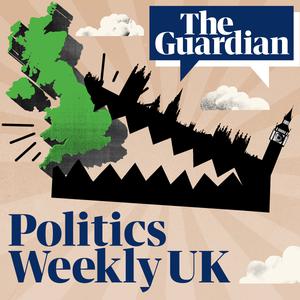 Politics Weekly UK
Politics Weekly UK
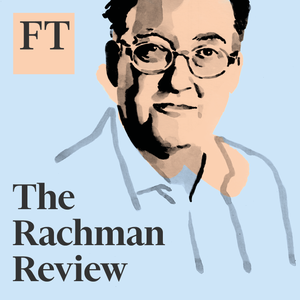 The Rachman Review
The Rachman Review
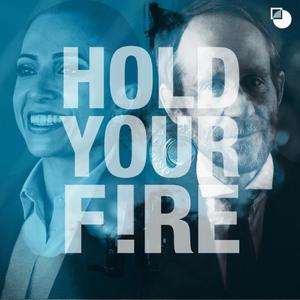 Hold Your Fire!
Hold Your Fire!
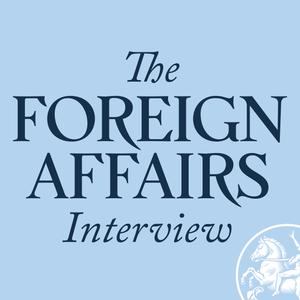 The Foreign Affairs Interview
The Foreign Affairs Interview
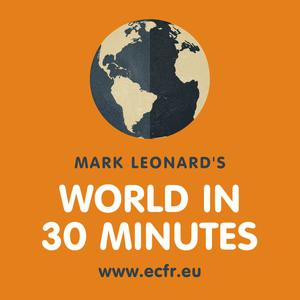 Mark Leonard's World in 30 Minutes
Mark Leonard's World in 30 Minutes
 Global Dispatches -- World News That Matters
Global Dispatches -- World News That Matters